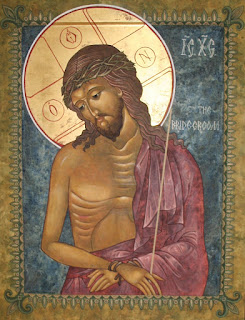Prophet- the next three titles are often spoken within the same descriptive phrase and specifically speak of Christ’s work among us, Prophet, Priest and King. Today’s title, prophet, was already well known to the children of Israel, although there was a 500 year gap between the recorded prophecy of Malachi and the controversial forth telling of John the Baptism. Prophet means, a person regarded as an inspired teacher or proclaimer of the will of God.
Who are the prophets of today? Pope Francis teaches that we must listen to the poor and the marginalised because they have a special insight into the reality of the world and of God.
It has been said that there are two ways of approaching Jesus: some hear him, see how he lives, and love and enjoy him. Others go back to their books and argue about his pedigree. The problem with a prophet is, some listen, others oppose and argue whilst still others ignore the message all together. So it is, with listening to the Prophetic word of Christ today.
Prayer can allow us be surprised by the prophetic Jesus – or to be questioned by him. We can end our prayer with the question, ‘Who is this Man, and what have I learned about him today?’ He gives no easy answers but walks with us while we ask the questions.
So prophet means public"spokesman," not "fortune-teller." The one whom in their unfathomable audacity the prophets claimed to speak for was the Lord and Creator of the universe. Mind you, there is no evidence to suggest that anyone ever asked a prophet home for supper more than once. The truth spoken by the profit requires a lasting response with those who have ears to hear.
1 COME, O thou Prophet of the Lord,
Thou great Interpreter divine,
Explain thine own transmitted word,
To teach and to inspire is thine;
Thou only canst thyself reveal,
Open the book, and loose the seal.
2 Whate'er the ancient prophets spoke
Concerning thee, O Christ, make known;
Chief subject of the sacred book,
Thou fillest all, and thou alone;
Yet there our Lord we cannot see,
Unless thy Spirit lend the key.
3 Now, Jesus, now the veil remove,
The folly of our darkened heart;
Unfold the wonders of thy love,
The knowledge of thyself impart;
Our ear, our inmost soul, we bow,
Speak, Lord, thy servants hearken now.
Charles Wesley







